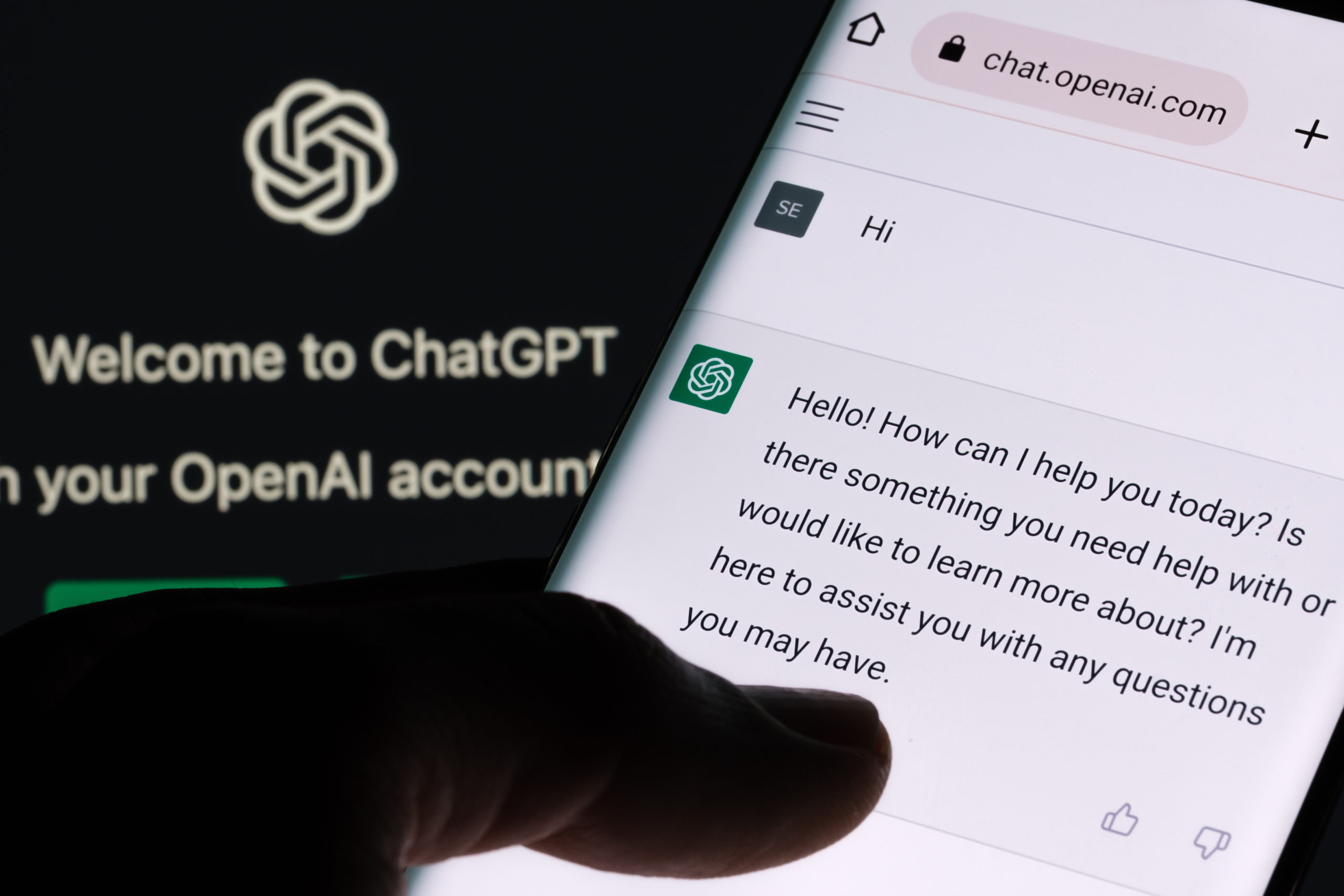
How AI Is (and Isn’t) Revolutionizing Content Marketing
By Dan Gower
It’s time for content marketers to address the elephant in the room: AI writing services have gone mainstream. Some say this technology is little more than a fad with no real utility. Others seem convinced human writers are on the brink of irrelevance. As is often the case in a spirited debate, the truth lies somewhere between the two extremes.
Using AI as a replacement for human writers is dangerous at this point. Artificial intelligence might parrot nonsense or inaccurate information it finds in its knowledge base. At best, the content will often be uninspired. From an SEO standpoint, algorithms are generally good at sniffing out machine-generated content.
On the other hand, ChatGPT can already help with some parts of the content production workflow. Writers who shun AI as a way to accelerate their processes might go the way of those who shunned the typewriter, then the computer. Tools like ChatGPT are ready to supplement human writers, not replace them.
How Good Is AI at Writing?
Whether or not you perceive an ethical problem with using AI for content marketing, the reality is that the technology can only help with certain tasks. So far, AI is bad at writing hooks or building narratives that might make people connect with content. The best content writers typically attract interest with opinions, analogies, or anecdotes. AI doesn’t have real-world experiences to draw from, so can only start with a simple summary or high-level introduction.
Do Human Readers Value AI Content?
AI can only pull from an existing knowledge base, not add anything new to the discourse. In this way, AI-generated content is a lot like what you’d get from a content farm. It repackages what’s already written without adding more value or substance. This kind of content won’t move human readers, but can it fool search algorithms?

AI itself says it can’t replace human creativity.
Here’s a conundrum for you: If ChatGPT is smart enough to compete with human writers, is it smart enough to know whether it can compete with human writers? Is the OpenAI product only being humble when it calls itself “a supplement rather than a replacement” for human creativity?
Do Search Engines Recognize AI Content?
Google wants to weed out AI-generated content. It takes the human touch to convince search engines and plagiarism detection your content is legit. In December of 2022, SEO researcher Ben Goodey ran an experiment to see what it takes for AI content to beat AI detection.
He tried three ways of massaging the content:
- Only making the changes recommended by Hemingway Editor
- Changing some pronouns to second-person (“you”) to warm the tone, plus modifying sentence structures
- Adding quotes, personal stories, and unique brand angles
The third strategy took the longest by far. It’s also the only attempt that made a significant difference in an AI detection score, per Originality.ai. This study seems to confirm the opinion that AI is a jumping-off point for human writers rather than a replacement.
With that in mind, how can writers use AI to maximize their speed and results?
How Skilled Writers Use AI
Content marketing thought leaders have already found a few successful applications of AI writing tools:
1.) Say It Straight
There’s an old saying among copywriters: “First, say it straight. Then say it great.” AI can help with the first part. AI can handle some of the chore work of coming up with simple definitions and overviews. This lets the human focus on making something more compelling.
The best prompts go beyond asking a general question or requesting basic information. You can ask the AI to explain a topic to a five-year-old, a fifth-grader, or a brain surgeon. Somewhere around the middle school level is normally best because it’s easy to understand without being too simplistic. Still, asking for a complex summary might show you how experts and thought leaders would discuss certain ideas.
2.) Topic Research and Outline Generation
AI can help the writer come up with ideas for articles and blogs, then even start fleshing out those ideas. Here’s what it came up with for some blog topics, including summaries:

With another prompt, the AI writing service outlined one of the article topics:

If you’re not satisfied with the outline, you can take a step back and ask the AI what kinds of questions people have about a topic, or what they want to know before taking a certain action. If nothing else, this can help you get over writer’s block by eliminating the blank page. You can revise the outline, then flesh it out yourself to create a full piece of unique, human prose. Adding quotes, anecdotes, and analogies along the way will make the content your own.
3.) Find Your Phrasing
AI can help supplement your keyword research by coming up with related phrases. It also helps you explore different ways to talk about a certain topic. You can even ask it for a glossary of terms around a certain topic if you want the result to include definitions as well.
4.) Brainstorming
AI can quickly generate multiple options for titles, meta descriptions, social posts, and more. In A Self Help Guide for Copywriters, Dan Nelken recommends spitting out 100 headlines quickly, without giving yourself much time to stop, edit, or even think much. The theory is that you can’t write 100 bad headlines in a row. Neither can AI.

AI can write titles for a thought leadership piece about itself.
The number doesn’t have to be 100. 10 might be a more manageable jumping-off place. There will be a lot of bad ideas, plus some little seeds of good ideas. It’s like the infinite monkey theorem, but a little bit faster and more focused. Whether or not AI is more or less human than a monkey is up for debate.
Supercharge Your Content Marketing When Human Meets Machine
AI can perform simple tasks, but it can’t create true “thought leadership” content. You’ll still need a human for that – better yet, a human who’s equipped with leading tools and resources.
And if you’re curious… a human wrote every word of this article.




